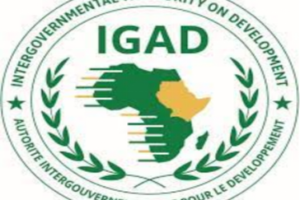
For years, the Grand Ethiopian Renaissance Dam (GERD) has been seen as a game-changer in the context of Africa’s development. This massive infrastructure project is now increasingly seen as a potential catalyst for stability and cooperation in the Horn of Africa. The dam, with its immense hydroelectric potential, promises to generate much-needed power for Ethiopia and its neighbors, laying the groundwork for deeper integration through energy linkages and infrastructural collaboration. The vision of a transformed East Africa, where countries can share not only resources but also opportunities for mutual growth, is no longer a distant dream but a tangible reality within reach.
The dam has long been a symbol of Ethiopia’s ambition and regional vision. With its completion on the horizon and its ability to generate power soon to be realized, the dam is poised to revolutionize not only Ethiopia’s energy landscape but also reshape the dynamics of regional cooperation in East Africa.
From the outset, Ethiopia has consistently highlighted its vision for the dam as more than just a national asset; it is a cornerstone for regional integration, cooperation, and shared growth. The rhetoric from Ethiopia surrounding the GERD has always been about transparency, cooperation, and regional goodwill. From the very beginning of the project’s conception, Ethiopia has sought to ensure that the dam does not become a source of tension but rather a platform for fostering positive relations with its neighbors.
Despite the early fears and concerns regarding water security in downstream countries, Ethiopia has repeatedly stressed that the dam’s construction would not negatively impact the water flow to Sudan and Egypt. This message has been reinforced through years of diplomacy, technical exchanges, and allowing various delegations from both regional and international organizations to visit the construction site. These open-door policies have offered transparent access to vital information, allowing experts and officials, even from countries that initially expressed skepticism, to assess the progress and sustainability of the project.
This gesture of openness has paid off in terms of regional trust-building. The country has shown that it is committed to ensuring that the GERD not only serves its own national interests but also contributes to the collective good of the region. Through various diplomatic channels, the country has emphasized that its hydropower resources are not intended to create divisions but rather to bring regional nations together. This has been an essential element in easing tensions and reframing the conversation about the dam from one of confrontation to one of collaboration.
As Ethiopia completes the final stages of the dam’s construction, the country’s regional energy strategy has already begun to take shape. The GERD is expected to play a crucial role in boosting Ethiopia’s power generation capacity, with estimates suggesting that the dam will produce over 6,000 MW of electricity. This surge in power generation will allow Ethiopia to become a key exporter of energy to neighboring countries, which have long struggled with power shortages and unreliable energy grids.
Ethiopia’s energy export strategy is built on the premise of regional interdependence. In recent years, Ethiopia has increasingly prioritized energy exports to its neighbors, facilitating a shift from a national to a regional energy vision. This shift is underpinned by Ethiopia’s desire to not only ensure that its neighbors have access to affordable and reliable electricity but also to leverage its growing energy capacity as a tool for regional cooperation. With Ethiopia already exporting power to countries like Djibouti, Kenya, and Sudan, the completion of the GERD will only accelerate the pace of energy integration across the Horn of Africa.
The broader regional implications of this energy integration are significant. Increased power exports will not only enhance energy security but also help mitigate some of the economic challenges faced by neighboring countries. The growing energy interconnection will foster deeper economic ties, improve trade relations, and create new avenues for joint development projects. For landlocked countries like South Sudan and Uganda, the availability of cheap and reliable electricity will be a game-changer in terms of industrial development, infrastructure growth, and overall economic expansion.
Energy cooperation also lays the foundation for a more stable regional environment. By prioritizing energy diplomacy, Ethiopia is contributing to a climate of mutual respect and collaboration in the region. The idea of “hydro diplomacy,” which refers to the use of water resources as a means of fostering cooperation rather than conflict, is central to Ethiopia’s approach to the GERD. The country has repeatedly emphasized its commitment to sharing the benefits of the dam with its neighbors, underlining that the dam is not just a national asset but a regional one. Through various diplomatic channels, Ethiopia has maintained that it is ready to cooperate with its neighbors to ensure that all parties benefit from the dam’s full potential.
The importance of this regional approach to energy integration is evident in the growing diplomatic support for the GERD. Just recently, participants of the Africa Regional Meeting of the Committee of Intelligence and Security Services of Africa (CISSA) visited the GERD to assess the progress of the project and to better understand its broader implications for regional stability. The visit, which included intelligence and security officials from various African countries, underscores the growing recognition of the dam as a critical infrastructure project that has the potential to foster greater cooperation and stability across the region.
During the visit, one of the delegates, Ter Tongyik Majok, Assistant Professor at the Institute of Peace, Development, and Security Studies at the University of Juba, emphasized the regional benefits of the dam, noting that the water flowing downstream is sufficient and that there should be no fear of adverse impacts on neighboring countries. This endorsement from a regional expert reflects the growing consensus that the GERD can serve as a platform for regional integration rather than division.
As Ethiopia continues to integrate its energy resources with neighboring countries, it is also demonstrating a broader commitment to regional development through its involvement in other key initiatives. Ethiopia has played a leading role in promoting regional infrastructure projects, including transportation corridors and cross-border trade agreements. The country’s investments in these areas, coupled with its push for greater energy cooperation, position Ethiopia as a central player in the regional integration process.
In addition to energy, Ethiopia has also been a strong advocate for environmental sustainability, launching initiatives such as the Green Legacy Program, which focuses on large-scale reforestation and environmental conservation. These efforts align with Ethiopia’s vision of creating a sustainable and integrated East African economy, one where regional cooperation is the driving force behind economic growth, environmental protection, and social progress.
In many ways, Ethiopia’s energy integration and hydro diplomacy represent a model for other African countries to emulate. By taking a leadership role in the region’s energy sector, Ethiopia is demonstrating that large-scale infrastructure projects can be a tool for regional cooperation rather than competition. The GERD is not just a project that generates electricity; it is a project that has the potential to unify the region, create shared opportunities, and contribute to the broader goal of African integration.
The successful completion of the GERD and its integration into the East African energy grid will have far-reaching effects on the geopolitical and economic landscape of the Horn of Africa. Ethiopia’s commitment to transparency, cooperation, and regional growth is clear, and as the dam nears its final stages of construction, it is becoming increasingly evident that the GERD is much more than just a national achievement—it is a testament to the potential of Africa to come together and work collaboratively for the benefit of all.
Ethiopia’s energy diplomacy is paving the way for a future where regional integration is not a lofty ideal but a tangible reality, built on shared resources, common goals, and mutual respect.
BY DANIEL ALEMAYEHU
THE ETHIOPIAN HERALD THURSDAY 5 JUNE 2025




